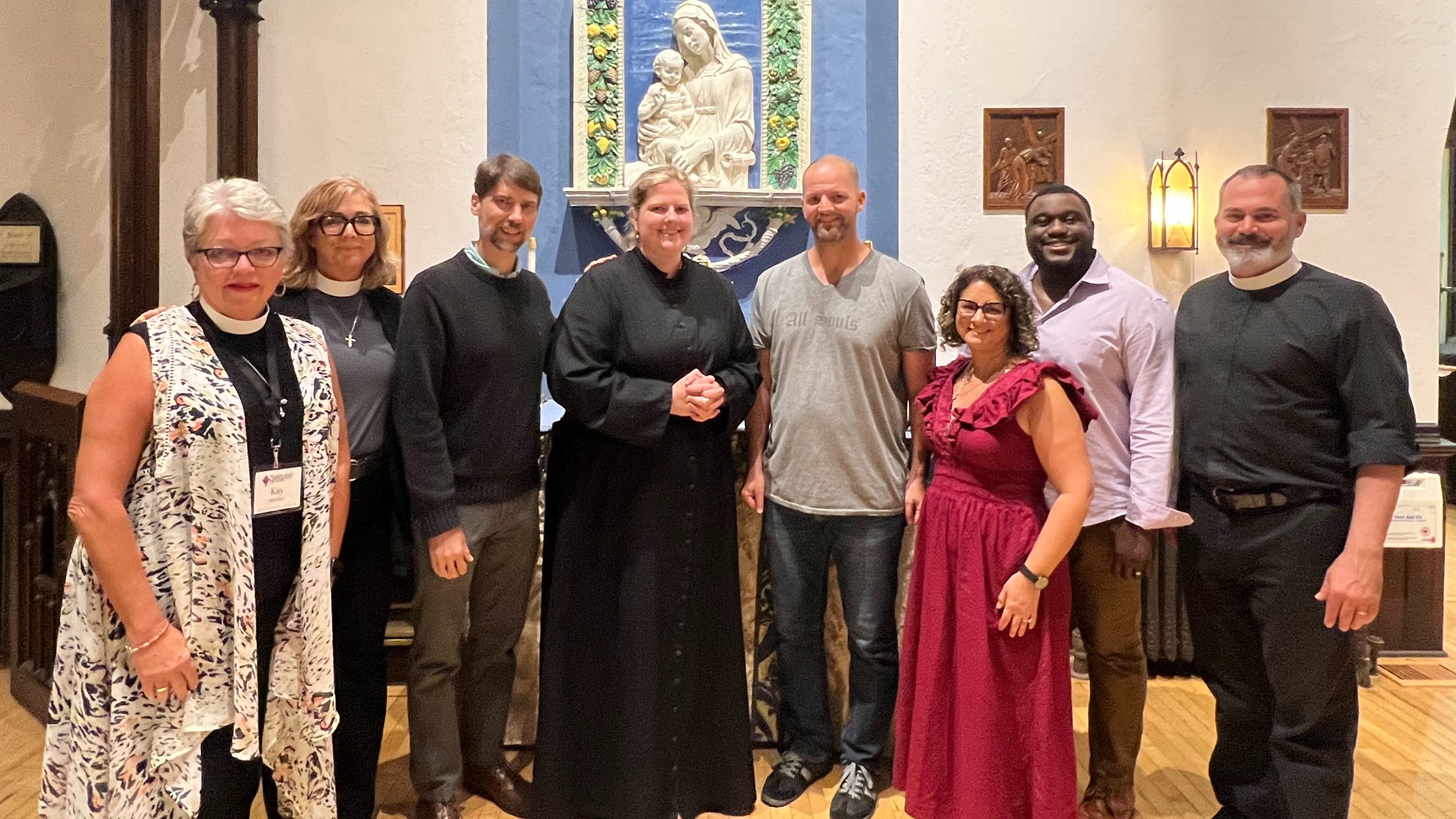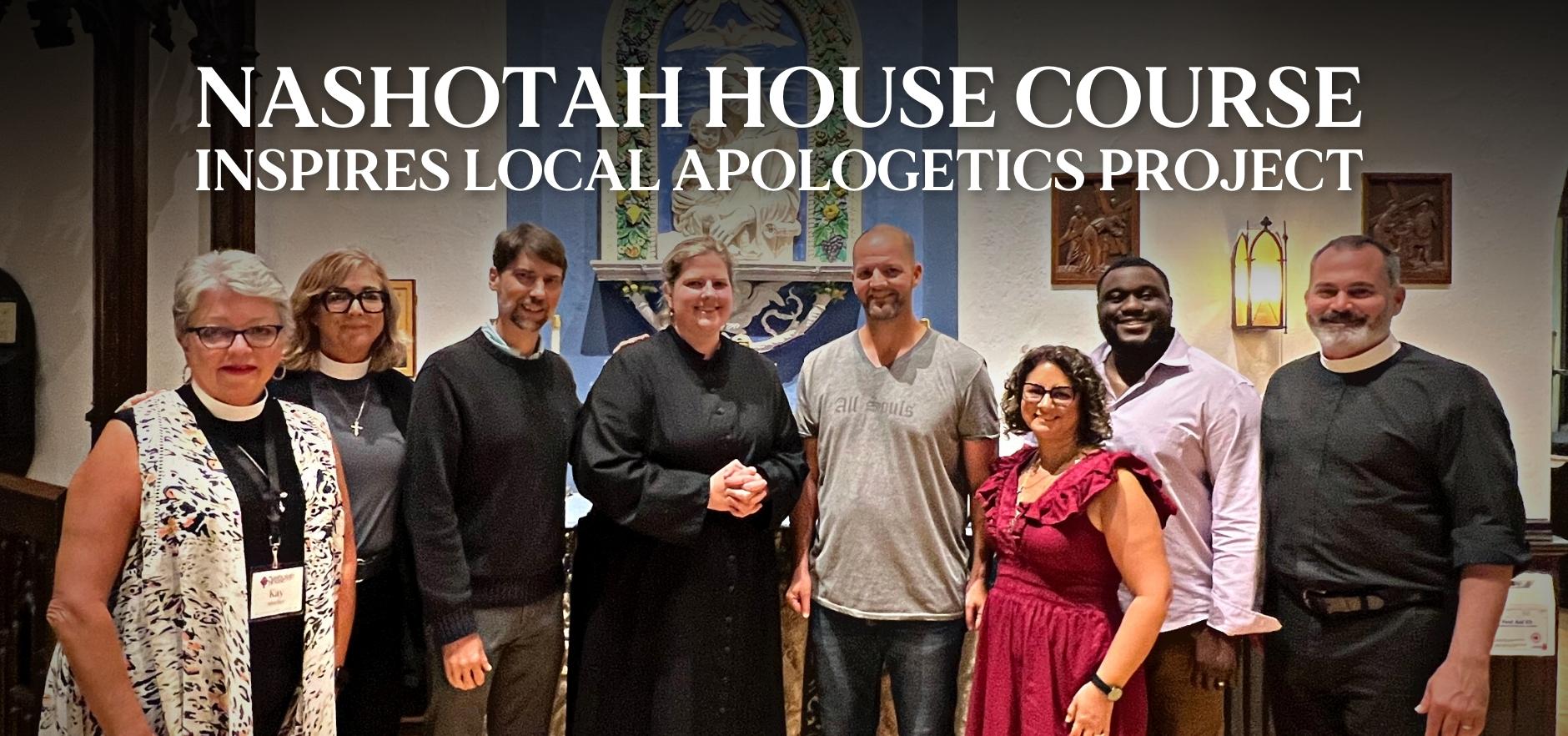For years there has been buzz in Christian circles about the rise of the “nones” and “dones,” or to use church vernacular, the “unchurched” and the “dechurched.” How should classical Christian apologetics pivot to address these groups specifically? That is the question The Rev. Canon Dr. Justin Holcomb sought to answer in his summer course at Nashotah House Theological Seminary in Wisconsin, “Apologetics for the Unchurched and Dechurched,” which is already having practical application within the Diocese of Central Florida.
While Holcomb has taught apologetics for over 20 years, this particular course allowed him to share cutting-edge research he compiled with a team of sociologists and market research analysts to examine the attitudes and perceptions toward Christianity among these groups.
“Students examined and engaged the most frequently raised objections to the Christian faith by unchurched and dechurched people,” Holcomb said. “They studied profiles, descriptions and demographics of the dechurched, and we explored and discussed practical steps churches and leaders need to take to respond well to them and to help slow dechurching.”

(L-R) The Rev. Kay Mueller, The Rev. Patricia Orlando, The Rev. Tom Trees, Elizabeth Garfield, Jonathan McClintock, Emilie Vick, Zacher Bayonne, The Rev. Canon Dr. Justin Holcomb (Mueller, Garfield, McClintock and Vick were present at Nashotah House for this picture, but did not take Holcomb’s course.)
Of the 11 students in the hybrid course, held both in-person and online, three were from the Diocese of Central Florida: Zacher Bayonne, candidate for priesthood, Trinity, Vero Beach; The Rev. Patricia Orlando, priest for pastoral care at the Cathedral Church of St. Luke, Orlando; and The Rev. Tom Trees, rector at St. James, Leesburg.
According to Holcomb’s research, this issue hits close to home. “Central Florida is one of the most unchurched and dechurched regions in the United States, as well as one of the fastest dechurching regions,” he explained.
The statistics ring true for Orlando, who has a heart for the unchurched and dechurched. “We have a lot of dechurched people coming to the Cathedral,” she said. “My friend describes them as ‘church hurt.’ I wanted to take this class to gain a deeper understanding of their experiences and how to minister to them.”
“First Peter 3:15-16 was the theme for this course,” Holcomb said. “One of my goals was to help students develop various skills to respond practically and faithfully in the proclamation of the gospel and in a way that is compassionate and humble.”
Orlando took that passage and the skills taught by Holcomb to heart. Rather than submit a final paper, she is undertaking a project to put those skills into action. “We learned in the class that there are three age groups where dechurching is most likely to occur: teens, college students and young adults entering the workforce,” she said. “When I thought about that, something clicked inside of me.”
To begin, Orlando is working with Cathedral teens not just in classical apologetics, but also “EQ apologetics,” a term she coined referencing the emotional intelligence (also known as emotional quotient, or EQ) side of apologetics. “As a priest, I am responsible not just for the doctrine in their heads (IQ), but also the doctrine in their hearts (EQ).”
Her time with teens focuses on the basics of Christian doctrine and transitions into the EQ portion as she walks them through the Lord’s Prayer. “For example, we discuss what we mean by ‘Our Father’ and not ‘My Father,'” she explained. “IQ isn’t enough if our actions are causing church hurt. We have to integrate EQ.”
As the priest for pastoral care, Orlando is also walking her pastoral care team of 18 people through similar material, centered around a meal. “Our battle in America is individualism,” she said. “We want to bend our minds toward community so that within our church we have a healthy way of living with each other.”
Orlando believes that building communities centered on active and emotionally intelligent apologetics will extend to the unchurched and dechurched who are not yet attending the Cathedral.
And Holcomb agrees. “We have reasons to be encouraged,” he said. “The tools and resources are already in our churches; we just need specialized training and encouragement.”

